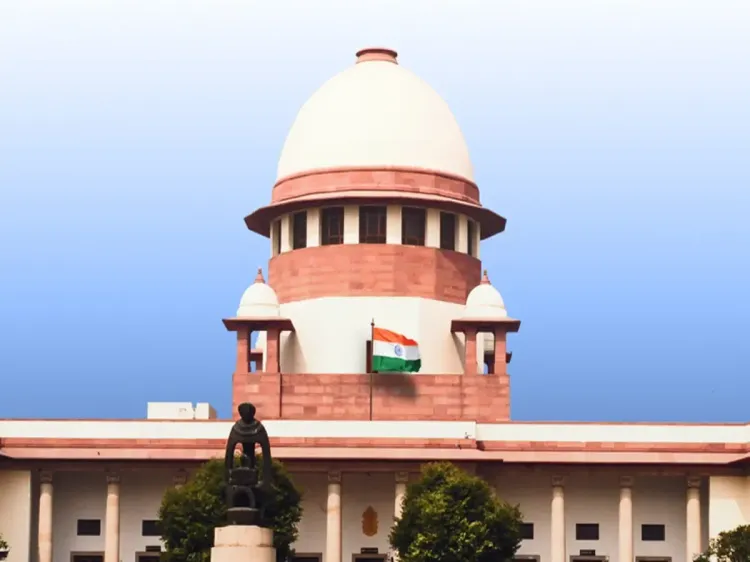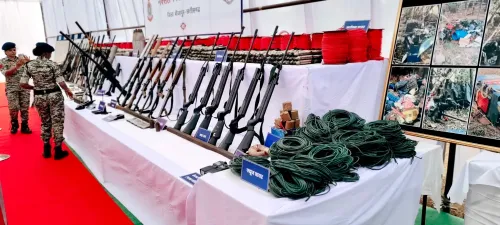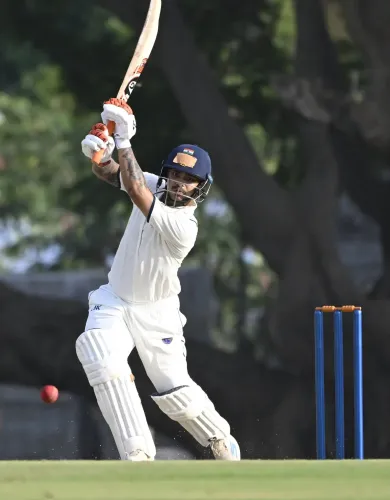Did the SC Issue a Notice on PIL for Access to Counsel?

Synopsis
Key Takeaways
- Supreme Court examining PIL for legal counsel access.
- Current practices may infringe on constitutional rights.
- PIL highlights issues of custodial interrogation and human rights.
- Calls for structural safeguards like video-recorded interrogations.
- Seeks to align with international legal standards.
New Delhi, Oct 15 (NationPress) The Supreme Court has taken a significant step by agreeing to review a public interest litigation (PIL) aimed at reinforcing and broadening the constitutional right of individuals to secure legal counsel throughout every phase of an inquiry or investigation.
By issuing a notice, a Bench comprising Chief Justice of India (CJI) BR Gavai and K Vinod Chandran has requested responses from the Centre as well as all states and union territories regarding this matter. The petition challenges the existing practice of granting only discretionary and limited access to lawyers for those who are arrested or summoned.
Senior advocate Menaka Guruswamy, represented by advocate Prateek Chadha, highlighted that this situation infringes upon Article 20(2) and 20(3) of the Constitution, leading to numerous human rights violations during custodial interrogation, including instances of torture.
The PIL articulates that the ongoing practice of preventing counsel from being present during inquiries, questioning, or interrogations—or allowing counsel to be only in a visible but not audible capacity—persists across various statutes, such as the Prevention of Money Laundering Act and the Narcotic Drugs and Psychotropic Substances Act. It contends that this practice fosters coercive interrogation environments and infringes on constitutional protections against self-incrimination and the right to due process.
“This trend of coercive, fragmented access to counsel not only violates the right to counsel under Article 22 and the right against self-incrimination under Article 20(3), but also undermines due process, fair investigation, and fair trial guarantees embedded in Articles 21 and 22, thereby perpetuating custodial abuses by investigative bodies and eroding investigative integrity,” the petition asserts.
Presently, Section 41D of the Criminal Procedure Code (CrPC) and its recent equivalent in Section 38 of the Bhartiya Nagarik Suraksha Sanhita (BNSS), 2023, only permit limited access for counsel—typically “within visible but not audible range”—during interrogation.
The PIL contends that such provisions are insufficient, stating, “Even the limited statutory right under Section 41D… fails to tackle the inherent power imbalance present during custodial interrogations, whether by police or any other state authority.” The plea references international norms such as the US Miranda rights and the ruling by the European Court of Human Rights in the Salduz v. Turkey case, which emphasized unrestricted access to legal counsel as fundamental to justice.
The PIL seeks a constitutional affirmation that guarantees full-time access to legal counsel from the point of questioning and requests the annulment of any statutory or judicial provisions that permit only partial or discretionary access to lawyers.
Additionally, it aims to establish structural safeguards, including video-recorded inquiries, questioning, interrogations, statutory notices of rights, and judicial oversight of any urgent exceptions.
“These measures are critical to uphold India's constitutional commitment to due process, prevent custodial violence, and ensure equality and justice from the initial contact with the criminal justice system,” the PIL concludes.









